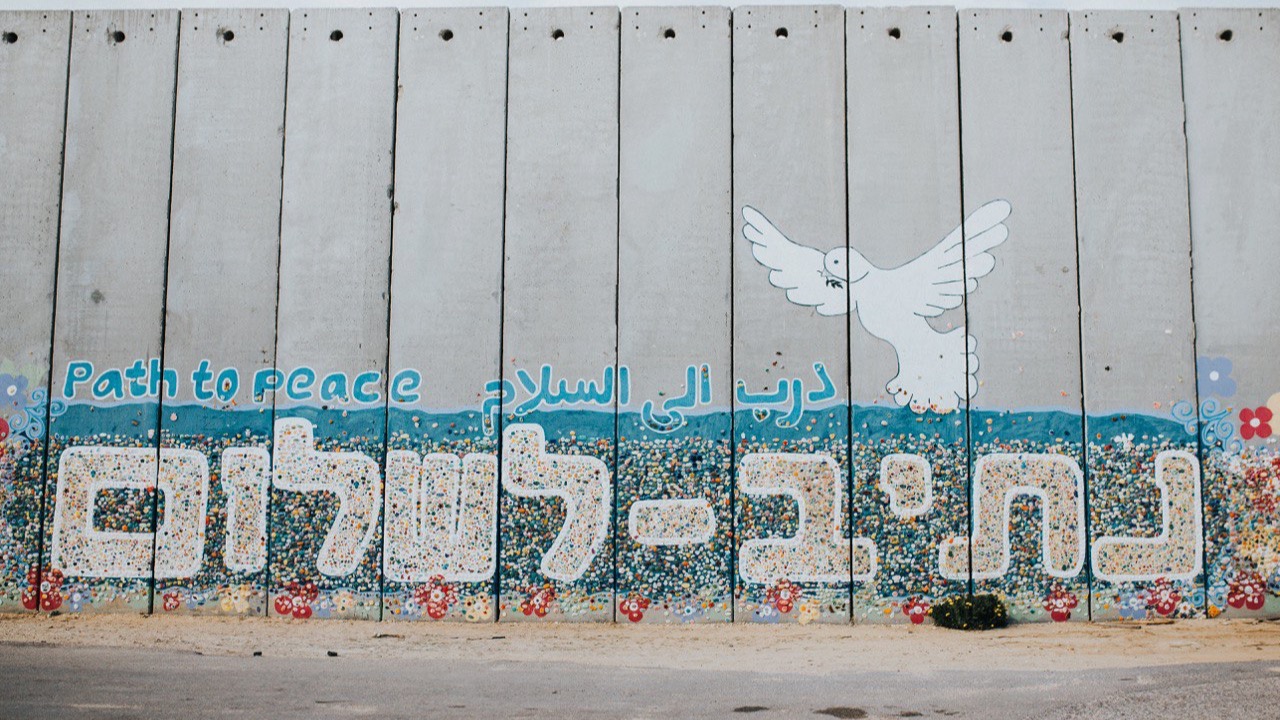Reconciliation in an era of broken relationships
October 14th 2021
Zechariah 7:9-10:
This is what the Lord Almighty said: "Administer true justice; show mercy and compassion to one another. Do not oppress the widow or the fatherless, the foreigner or the poor."
In the beginning, we see that God created the world in perfect harmony. There were healthy interdependent relationships between humans and God, humans and their selves, and humans and the rest of creation (Genesis 1:26-31). It’s hard to imagine right?
And then something went wrong with this perfect harmony. Sin entered the world, and these relationships were broken and something strange called ‘poverty’ emerged.
But this wasn’t simply a poverty that seems understandable in a material sense - a lack of money or resources. It was the absence of something far more profound. It was the absence of shalom.

Timothy Keller describes the Hebrew word shalom in his book Generous Justice as the fullest flourishing in every dimension – physical, emotional, social, and spiritual – “when all relationships are right, perfect, and filled with joy”.
In other words, shalom isn’t just about peace, it’s about a complete harmony and wellbeing as it relates to all relationships.
So when sin entered our world, a poverty of relationships occurred and can often require a series of radical changes for shalom to be fully restored again – for a state of complete relational reconciliation to manifest.
As the prophet Zechariah declares above, and is frequently apparent within Scripture, God defines poverty in terms of relationships. These verses imply that the restoring of relationships in God’s eyes requires the administration of true justice for shalom to occur. This is particularly important when culture or systems exist that compromise relational wholeness for vulnerable people groups, such as those we see in this verse; the widow and her fatherless children, immigrants and refugees, and those experiencing poverty.
But when we consider mission or local and overseas ministry through this lens, the outworking of relational reconciliation – particularly during these times of COVID-19 - can become incredibly complex. The restoration of relationships is multifaceted. We can seek to meet the immediate physical needs of vulnerable people, but fail to support them with the far wider brokenness in their social network long-term.
A good example of this is when I worked for the Leprosy Mission. Seeking to meet the physical needs of people affected by leprosy does not address the reality of being socially ostracised. It requires family and community awareness raising to eliminate the cultural fear and stigma associated with a treatable disease. Furthermore, it requires advocating against systems of discrimination that can limit livelihood opportunities for those with disabilities for instance. Without these steps, seeking to simply meet physical needs can actually perpetuate emotional brokenness or the poverty of ‘being’ for those experiencing physical poverty, and often isn’t a catalyst for spiritual reconciliation.
Conversely - as Bryant Myers highlights in his book Walking with the Poor - as Western Christians living in relative material wealth and supportive social networks in Australia, we can also experience a poverty of ‘stewardship’. We can be tempted to overwork, compromising our emotional health or relationships with family and God, neglecting to remember that relational reconciliation – shalom and flourishing that God intended – necessitates more than simply physical and material fulfilment.
Whilst we wrestle with these tensions, and the daily dilemma of how to thrive through these times of coronavirus, we must always remember that God sent Jesus with a mission and a message to restore all that sin had damaged and reconcile his people and all of creation back to God. To a large extent, this can happen with or without COVID-19. Whilst addressing relational poverty and the work of justice through our mission organisations might seem complex, I am beginning to realise that the lens of relational reconciliation for ourselves, with God, with others, and particularly our local neighbourhood, must always be clothed with the simple Spirit of grace and shalom.
So start with yourself and God - find time for self-care, whatever that looks like, and be kind to yourself. Worship. And remember that the heavy-lifting involved in God’s restoration project for you, me and the whole world has already been achieved in Him, so that we can shine the shalom of Christ during these uncertain times.

Philip Hamilton
Philip Hamilton is the Neighbourhood Pastor at Discovery Church in Mount Evelyn, a church with a heart for mission both locally and overseas. Philip is from the UK, having lived in Australia for the past five years. He’s married to the beautiful Belle, and together they have twin boys. Phil thrives on seeing people growing to become more like Jesus, and is passionate about social justice, particularly for those that have been discriminated because of disability or disadvantage.
← Called to be faithful Disability in Mission = Mission Possible (Part 1)→